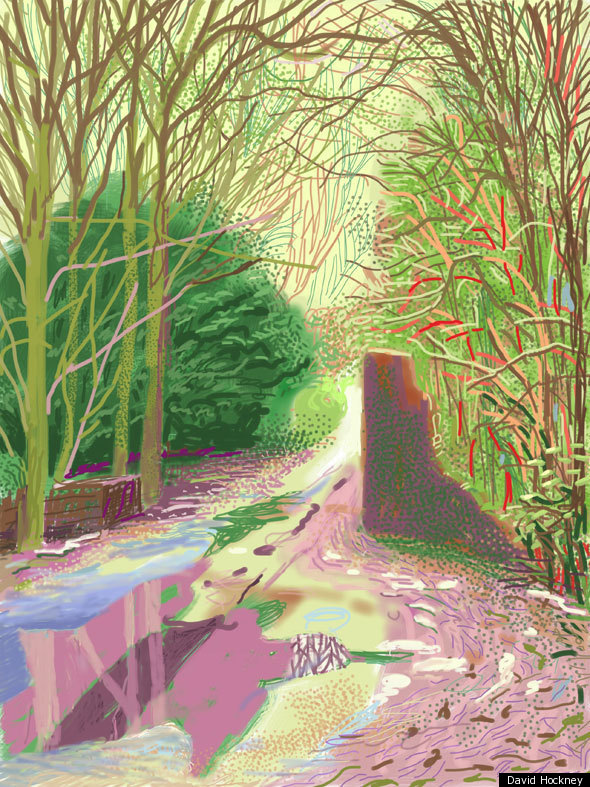
I never cared for David Hockney’s paintings. Why was that? I didn’t pay much attention to them, but on occasion he would do the cover of the New Yorker and I dismissed his work as decorative, with a sneer.
Well I was wrong.
As soon as I entered his massive “A Bigger Exhibition” at the de Young Museum in San Francisco last Friday, I realized my mistake.
Hockney is actually a phenomenal artist. The show, which is composed of mostly work he’s done since 2000, is mind-blowing. How could one person complete over 250 works of art, some of them wall-sized, in 13 years. By contrast, the Pointillist painter George Seurat, for example, could spend two years on a single painting.
I could talk about Hockney’s landscapes, which are unlike other landscape paintings. The artist has created a new visual language to let us see what he sees. There is a quality in the work that makes me think of Vincent van Gogh.
But what’s most impressive to me is Hockney’s embracement of the iPhone and the iPad as tools to make art.
The man is 76 years old. He is very successful. He could keep painting and drawing portraits and landscapes for the rest of his life. He did not need to start using new technology to make art.
But he did.
Check out the images above that Hockney made with his iPhone and an app called Brushes.
Or this piece made with an iPad and Brushes:

As I wandered though the exhibit, which takes up most of two floors of the museum, I was struck by two things.
First, when you look at the world, and I mean really look, and are open, there’s a chance of seeing something new.
And then I thought about all the rules that we come up against in life. Art is supposed to be “this,” and a novel is supposed to be “this,” and music is supposed to be “this.”
But we can ignore the rules. There’s a price to pay of course, especially if you’re not an already celebrated artist. But how are we going to break on through to something new unless we takes chances.